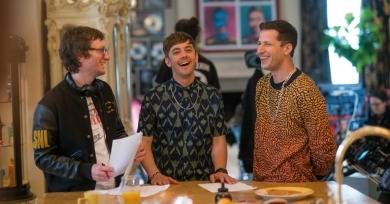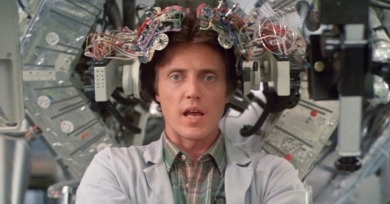Jackson Arn
There comes a point where the jokes fly so fast that what they are spoofing ceases to matter and they achieve a state of absurdity for absurdity’s sake to which most recent comedies have only aspired.
At the heart of Benning’s practice is an unmistakably avant-garde thesis: ordinary ways of experiencing reality need to be transcended with the help of cinema.
As the story of America unfolds, the emblems of civilization—cars, buildings, and above all those black, foreboding power lines—multiply like bacteria, until they are the story. Conceived, in theory, to make life more pleasant, contemporary American society has become a prison...
The 1985 science-fiction dystopia by director Terry Gilliam presaged the Trump era as much as Orwell, as reflected in the nonsensical bureaucracy of the Presidential Executive Order Reducing Regulation and Controlling Regulatory Costs.
The most intriguing draw is a 38-minute Eternalist collage of footage taken by New Yorkers on the day of the World Trade Center attack.
If any single quality defines the paintings scattered throughout her films, it is their refusal to exist simply as beautiful objects, and their ability to allude to profound timelessness, lifelessness, and stillness.
With his willingness to throw ordinary characters into almost unbearably tragic situations from which no greater meaning seems salvageable, Lonergan stands apart from the bulk of American narrative directors working today.
At least on paper, Anderson’s film, about the making of the album, qualifies as minor in nearly every way: its 54-minute length; its lack of a national theatrical release; its sudden announcement, relatively free from fanfare, less than a year after Anderson’s Inherent Vice. And yet Junun is in other ways a major event.
Brainstorm is a special-effects film in the sense that it contains more than its fair share of visual trickery but also because it’s concerned with the people and institutions that develop that trickery.








